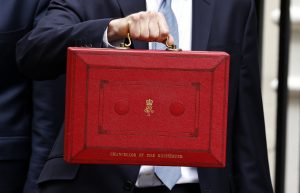4th June 2021
June Market Overview
UK
It has been an immensely positive month for the UK, with the vaccination programme succeeding in fully inoculating nearly 40% of the population and giving at least one dose to 75%. Plans to reopen the economy fully are still in place for later in June barring any major setbacks. The vaccine programme hasnot been without problems, as evidence that the AstraZeneca/Oxford jab is linked to rare blood clots, particularly in younger males, has seen confidence inthe vaccine fall and the government offering alternatives to those under 40.
Unsurprisingly, the success of the vaccine rollout is having a very positive affect on the economy, with the Bank of England forecasting that the economy would grow by the most since World War Two this year, raising its forecast to 7.25% from 5%, and predicting unemployment would peak at just 5.4% rather than the 7.8% previously predicted. Time will tell though, as the government’s furlough scheme is set to end in September, although Chancellor Rishi Sunak has indicated this may be extended further still. The OECD (Organisation for Economic Cooperation and Development) also said that the UK would be the fastest growing major developed economy this year.
Data was released in May showing that the City of London lost £2.3 trillion worth of derivatives trading in a single month from Brexit, with Wall Street platforms benefiting the most. The percentage of Euro-based swaps dropped from 40% in July last year to just 10% in March this year. Bank of England governor Andrew Bailey had previously suggested the EU would attempt to lure the lucrative Euro-based derivatives business away from London and on to the continent, though it was always predicted that New York would be the ultimate beneficiary. More positively, disruptions in post-Brexit trade in UK goods has subsided further in March, with merchandise exports to the EU rebounding 8.6% from a month earlier as car sales to the bloc rebounded. Figures point to January’s shock numbers being more of a one-off initial shock rather than the start of a sustained downtrend.
The UK and India are set to start official trade talks in June with both sides keento do a deal and double existing levels of trade by 2030. As part of the trade talks an additional £1 billion of private sector investment and an extra 6,000 new jobs will be created in the UK, whilst India will benefit from continued UK support as it battles what has become the world’s worst-hit COVID country.

Eurozone/EU
In Brexit news Brussels has accused the UK of breaking the Brexit trade deal agreed last year in a dispute over Jersey fishing licenses. France threatened to put a permanent block on UK financial service firms accessing clients in the EU in retaliation to what they said were punitive extra checks. The UK said they were imposing the agreed upon checks in accordance with the Brexit trade deal. The French government also threatened to cut off the electricity supply to Jersey. The situation became quite tense when French fishermen blockaded the English Chanel and the UK sent navy patrol boats in response. Tensions appear to have calmed since then, at least for the time being, but tensions will continue to run high as both sides adapt to the new normal.
The EU Commission last month adopted plans for a unified corporate tax rule book in an attempt to stop a race to the bottom amongst member states. Under the plans the EU would create a single corporate tax rulebook and reallocate profits between member states, although actual legislative proposals will be put forward in 2023. Previous efforts for a common tax policy have been met with stiff opposition from EU member states that currently benefit from the system, such as Ireland, which has long opposed any measure that would harm its status as a tax haven.
As the EU’s own vaccine programme has finally gained some traction, the European Commission has upgraded growth forecasts for the Euro-area economy to 4.3% from 3.8%, with total output for the EU’s 27 member states now expected to reach pre-pandemic size by the end of this year. Also of note, however, is the Commission’s re-iterance that the unprecedented support fromnational governments to prop up businesses and households during the pandemic has pushed Euro-area public debt to 100% of GDP in 2020. This is the first time this level has been reached and is expected to peak at 103%, with the suspension of normal fiscal rules expected to remain in place until the end of this year.
US
U.S. President Joe Biden will delay a ban on new U.S. investments in certain Chinese companies by a fortnight in order to provide clearer guidance on a policy brought in under Trump that confused Wall Street. Tensions between the US and China remain high as ever, with President Biden so far unwilling to reverse any of Trump’s anti-China policies.
U.S. central bank officials may be able to begin discussing the appropriate timing of scaling back their bond-buying program at upcoming policy meetings, Federal Reserve Vice Chair Richard Clarida said in a Yahoo! Finance interview. The Fed is currently purchasing assets at a pace of $120 billion per month, but Morgan Stanley’s chief executive predicts that it will begin taperingits bond buying toward the end of this year.
President Biden will meet Russian President Vladimir Putin in Geneva on June16th for their first in-person session since Biden took office. Russia’s cyber-attacks, military aggression, Belarus, and human rights abuses are among the issues on Washington’s agenda for the meeting, which will come at the end of Biden’s first trip overseas since taking office. Biden is working to change the stance on Russia from that of Donald Trump, whose approach was clouded by a lengthy investigation into accusations of Russian interference in the 2016 election.
U.S. core and headline inflation both jumped more than forecast in April. Theconsumer price index increased 0.8% from March, the most since 2009 andfour times consensus. The core measure—which excludes the volatile food andenergy components—rose 0.9%, the most since 1982.
The annual inflation rate in the US soared to 4.2% in April of 2021 from 2.6% in March and well above market forecasts of 3.6%. It is the highest reading since September of 2008, amid a surge in demand as the economy reopens, soaring commodity prices, supply constraints. The biggest increases were recorded forgasoline (49.6% vs 22.5% in March), fuel oil (37.3% vs 20.2%) and used cars and trucks (21% vs 9.4%). The Fed still isn’t particularly worried. Federal Reserve Vice Chairman Richard Clarida acknowledged that he was surprised by April’s jump in consumer prices but argued that the rise in inflation was likely to be prove largely transitory. “Readings on inflation on a year-over-year basis have recently increased and are likely to rise somewhat further before moderating later this year,” he told a meeting of the National Association for Business Economics. He expects inflation to return to — or perhaps run somewhat above – “our 2% longer-run goal in 2022 and 2023.”
Asia
In China, Beijing is becoming increasingly concerned over record prices feeding through to rising inflation. The National Development and Reform Commission, China’s economic planning agency, said on Monday it would crack down on monopolies in commodities markets, the spread of false information and hoarding. That message rippled through markets, with the main futures contract for iron ore dropping 7 per cent on China’s Dalian exchange to Rmb1,049 ($163) a tonne. It has fallen almost 20 per cent since hitting a record high earlier in the month. The aluminium futures contract for July delivery dropped 3 per cent on the Shanghai exchange. China is by far theworld’s biggest consumer of commodities and higher raw material prices feed through to production costs.
China also halted economic dialogue with Australia, adding to evidence of fraying ties with the West hours after a G-7 communique slammed Beijing over issues ranging from Xinjiang and Tibet to Taiwan. China’s National Development and Reform Commission claimed officials in Australia are disrupting exchanges out of a “Cold War mindset.”
Population growth in China grew at its slowest rate in decades in the 10 years to 2020, according to census data released on earlier this month. The nation’s once-in-a-decade census, which was completed in December, showed its population increased to 1.41bn just 5.4 per cent from 1.34bn in 2010 — the lowest rate of increase between censuses since the People’s Republic of China began collecting data in 1953.
The Japanese economy shrank 1.3% on quarter in Q1 2021, a drop of 5.1 per cent at an annualised rate, compared with market estimates of a 1.2% fall and after a 2.8% growth in the previous period, a preliminary reading showed. In early May, The Bank of Japan left its key short-term interest rate unchanged at -0.1% and maintained the target for the 10-year Japanese government bond yield at around 0% during its April meeting, as widely expected. In a quarterly outlook report, the central bank slashed its consumer inflation forecast for the current fiscal year to 0.1% from earlier predictions made in January of 0.5%.
Disclaimer:
The opinions expressed in this update are those of A&J Wealth ManagementLimited only, as at 4th June 2021, and are subject to change.
The content of this publication is for information purposes and should not be treated as a forecast, research or advice to buy or sell any particular investmentor to adopt any investment strategy. It does not provide personal advice based on an assessment of your own circumstances. Any views expressed are based on information received from a variety of sources which we believe to be reliable but are not guaranteed as to accuracy or completeness. Any expressions of opinion are subject to change without notice.
Past performance is not a reliable indicator of future results. Investing involvesrisk and the value of investments, and the income from them, may fall as wellas rise and are not guaranteed. Investors may not get back the original amountinvested.












